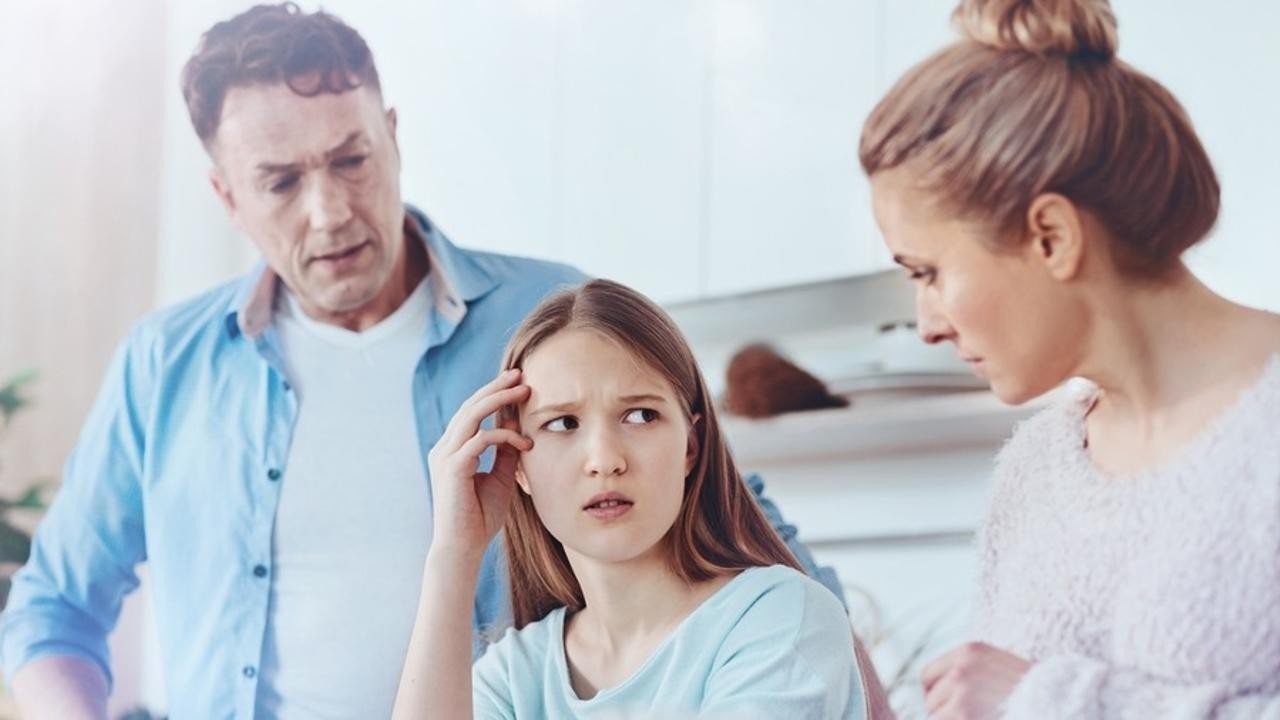October is Let’s Talk Month: How to Start "The Talk" with Your Kids
October has arrived, and with it comes Let’s Talk Month—a perfect reminder to engage in important conversations with your kids. As a parent, I know how challenging it can be to approach tough topics like relationships, sexual health, and growing up, but it doesn’t have to be a daunting task. In fact, the more you open up and talk to your children about these issues, the stronger the connection you’ll build with them.
Over my 20 years of working in sexual health education, I’ve seen firsthand how a lighthearted approach—using humor, fun activities, and storytelling—can make even the toughest subjects easier for parents and kids to navigate together. At The Talk Institute, I’ve developed courses designed to help parents create that bond, ensuring their children see them as approachable, which is key to building an ongoing, trusting relationship.
Why October is the Perfect Time to Start THE Talk
In today’s world, kids are exposed...
How to Talk to Your Kids about Porn

There's no sugarcoating it: It's likely your kid will come across porn online, even through completely innocent searches. In all honesty, haven't you come across adult content when searching for something unrelated? I once looked up Girl Scout cookies under Google images and stumbled across some different "cookies" I wasn't looking for if you know what I mean? Parents may find themselves confronting this issue much sooner than imagined, with kids who may not even understand exactly what sex is yet. We've created an amazing toolkit to help parents have the porn talk. Request it here.
Not surprisingly, reports on porn use have shown an upswing of use during COVID. Even if we install blockers and software to limit their exposure we have to assume that they won't work 100% of the time and we can't control all devices kids come in contact with. In Peggy Orenstein's popular book Boys and Sex she writes, "Porn raises the question...
Caught in the Act - What to Do if Your Child Catches you Having Sex

Imagine this... You and your partner are having some much needed and maybe even rare intimate time and your child suddenly barges into your bedroom because they had a bad dream.
This is a scenario we all hope to avoid. If this hasn't happened to you yet lets first talk about how to make sure.
How NOT to get caught!
If you want to not have this happen to you, try this...
1. Get a lock on your door and use it when you need private time.
2. Talk to your kids about privacy. Teach them that when a door is closed (bathroom or bedroom) it is polite to knock first and wait for permission to enter someone's room. Tell them that when your door is shut that you would like them to do this.
3. When you enter your child's room knock or say "knock, knock" before entering. This will model the behavior you want from your child.
4. Use soft music or have the TV on to soften any sounds you may make during love making.
5. As your child gets...
The Secret to Answering Difficult Questions Children Ask: A Simple Framework for Parents

I have an amazing framework to share with you. It's how to answer any difficult question. Any question! These are some steps that I recommend that parents consider when they get stumped by a question. Even when your child asks something that just floors you. In these moments you might feel very surprised, shocked, concerned, or scared. There's a lot of different feelings that can come up for us when our children are asking questions. It can even inhibit us from having certain conversations because we're fearful of some of the difficult or tough questions children may ask.
I’ve created a simple framework that parents can use when they find themselves answering a difficult question. Whether it’s a question about sexuality, violence, a belief, or a question about something that you've experienced. Anything that may freak you out.
I'm going to walk you step by step through a simple strategy. Are you ready to feel more empowered and certain talking to your...
When Kids Don't Talk to YOU about "IT"

Imagine this... You've noticed the first signs of your son or daughter entering puberty. Hair in new places, body odor, breasts budding, and the wonderful new attitude that hormones seem to ignite. You've had a good, strong relationship with your child. You still do. But … you know you need to keep conversations going about body changes, crushes, relationships, sexuality and suddenly, you're talking, they're not. Maybe they're rolling their eyes, looking past you, shrugging their shoulders. Or, maybe they listen when you talk, but they are silent. Now what?
First of all, it is normal for teens to have their silent times, their talkative times, and indifferent times.
Second, remember that you have been communicating with your kids about sexuality and relationships from the moment they were born—whether you've ever actually had "THE Talk" about these topics or not. They have been watching you, listening, and absorbing your...
Undercover High Documentary Comments
A new documentary series recently aired on A&E called Undercover High. It follows 7 young adults (25 and under) who go back to High School in Topeka, Kansas to see what it is like to be a teen today. They acted like normal students while attending classes, making friends and participating in school clubs and activities, according to the show’s website. Each “student” – a youth pastor, former teen mom and others – was tasked with enacting positive change. What they saw, heard and experienced became an 11-part documentary series.
Of course this is one high school, in one part of the country, but the producers carefully selected one that was diverse and represented the country the best possible.Racially, the student body is one-third black, one-third Hispanic and one-third white. Before you dismiss this show because it isn't in your town, I believe there may be something for adults and parents to learn here.
So far, some of the issues that...
Should You Talk With Your Kids About Sexual Harassment?
"Mommy, what's sexual harassment?" Have you gotten this question yet? With all the accusations in the daily news reports it wouldn't be surprising.
With very young kids there is no reason to talk about it unless they bring it up. But be prepared in case they do. Here are some tips to help you broach the subject.
Ask questions - "Where did you hear that?," "What do you think it is?," or "How did it make you feel to hear that?"
Watch your tone and be reassuring - Kids can sense if you are upset or angry. Be sure to let your children know you aren't mad at them. Try saying something like: "I love when you come to me with your questions and it's OK to ask or tell me anything even if you think it's something bad."
Keep it simple - There is no need to over-explain to young children. You want to satisfy their curiosity though and use terms they can understand. Try saying something like, "Harassment is a fancy word for bullying. Sexual harassment...
Talking to Kids about Tragic News (Like the Las Vegas Shooting)

First thing Monday morning my husband told me the news about the Las Vegas shooting. It was a news alert on his phone and he gasped as he shared the awful news with me. We both poured over the little bit of information that was available about what had happened. Just the weekend before we were both in Las Vegas which made everything hit home just a little bit more. I immediately jumped on Facebook to check on two friends of mine that I knew were at the concert to see if they were safe. Thank goodness they were not harmed physically but were definitely traumatized by the whole situation.
Over the next few days, I kept hearing stories of friends of ours that had loved ones there. One friend had a loved one that was shot in the leg and was one of the 500 injured. Two Manhattan Beach residents including a middle school teacher (Sandra Casey) and police department employee (Rachael Parker) were killed. I know many of you had friends and family there as well, and my thoughts and prayers...
Should You Set Parental Controls on Devices?

We get many requests to address parental control apps in our social media classes. In fact, recently a friend of mine had asked me how to handle an incident she had with her 15 year old son. While confiscating his phone after getting in trouble, she saw that he had messaged every girl in his contact list on Snap Chat to "exchange nudes".
She was livid and needed advice on how to handle this!! She decided to delete the app off his device and take his phone away for a few weeks. During that time he downloaded the app on a different device and was accessing his account.
This got me thinking A LOT! What do parents do in situations like this? What would you do in a situation like this? The question of how much monitoring should I do is a gray area for parents and we struggle with the right answer. And really the right answer is, it depends. That can be the frustrating part. What I mean is ideally when a child gets a device (e.g. cell phone, tablet,...


